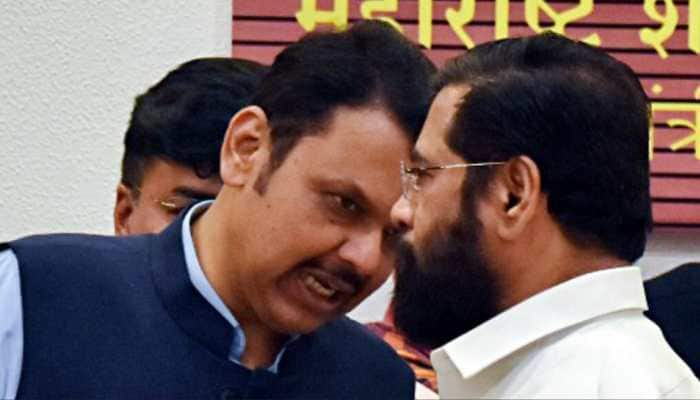Arun Jaitley hails armed forces in budget speech, allocates Rs 2.95 lakh crore for defence budget for 2018-19
Finance Minister Arun Jaitley on Thursday raised long-term capital gains (LTCG) tax to 10 percent from zero at present, reduced corporate tax for 99 percent of the companies to 25 percent but left the tax structure for individuals largely unchanged.
Trending Photos
) Representational image
Representational image New Delhi: An outlay of Rs 2.95 lakh crore was on Thursday set aside for the defence budget for the next fiscal which is an increase of 7.81 percent over last year's Rs 2.74 lakh crore.
Out of the total allocation, the capital outlay for the three defence services for the purchase of new weapons, aircraft, warships and other military hardware has been pegged at Rs 99,947 crore.
The outlay for defence budget amounted to 12.10 percent of the total budget of Rs 24,42,213 crore for 2018-19.
Compared to the revised estimate of Rs 2.79 lakh crore for the defence budget in 2017-18, the increase in allocation has been 5.91 percent but compared to the budget outlay of Rs 2.74 lakh crore, the hike is 7.81 percent.
Out of Rs 2,95,511 crore allocated for the financial year 2018-19, Rs 99,947 crore has been pegged for capital outlay which includes expenditure on modernisation of the three forces, according to the defence ministry.
The revenue expenditure, which covers payment of salary, maintenance of establishments and other related expenditure, has been pegged at Rs 1,95,947 crore.
A separate amount of Rs 1,08,853 crore has been set aside over the above the total allocation for the paying pension to defence personnel. The amount for defence pension is an increase of 26.60 percent over the allocation of Rs 85,740 crore last year.
In his budget speech, Finance Minister Arun Jaitley appreciated the role played by the armed forces in meeting challenges on the country's borders as well as in managing the internal security environment, both in Jammu and Kashmir and the Northeast.
He said the government will develop two defence industrial production corridors and bring out an industry-friendly military production policy to promote the domestic defence industry.
Meanwhile, in his last full budget before Lok Sabha elections in 2019, Jaitley raised long-term capital gains (LTCG) tax to 10 percent from zero at present, reduced corporate tax for 99 percent of the companies to 25 percent but left the tax structure for individuals largely unchanged.
The FM's focus was on rural India and agriculture, perhaps with an eye on electoral gains for the ruling party at the centre next year, announcing a number of schemes and incentives. For the Kharif agricultural output, the minister increased the minimum support price to one and half times of production cost, raising institutional farm credit to Rs 11 lakh crore in 2018-19 from Rs 8.5 lakh crore. His speech also focused on education and healthcare.
The finance minister indicated a slippage in fiscal deficit for the current year from 3.2 percent to 3.5 percent and from 3 percent to 3.3 percent (Rs 5.95 lakh crore) of the GDP next year, indicating the government will be borrowing more to balance its books.
The government announced a health coverage called National Health Protection Service of upto Rs 5 lakh per family in secondary and tertiary treatments, which is expected to cover 10 crore poor families. The government is likely to make an expenditure of Rs 4,000 crore on this. The finance minister called it the world's largest health scheme.
To pay for the social welfare schemes, the government has imposed Social Welfare Surcharge at the rate of 10 percent on aggregate customs duties. The Surcharge replaces the earlier Education Cess and Secondary and Higher Education Cess.
Jaitley also imposed a 10 percent dividend distribution tax on mutual fund companies which invest in equities.
(With PTI and IANS inputs)
Stay informed on all the latest news, real-time breaking news updates, and follow all the important headlines in india news and world News on Zee News.
Live Tv







)
)
)
)
)
)
)
)
)
)
